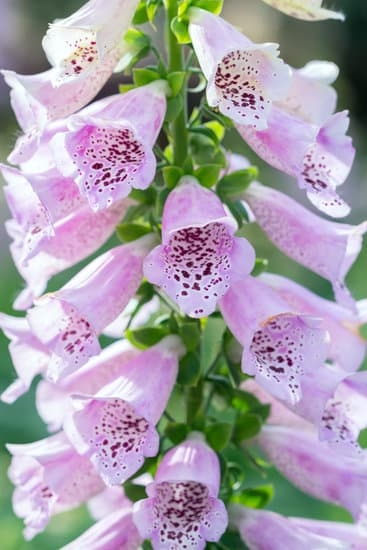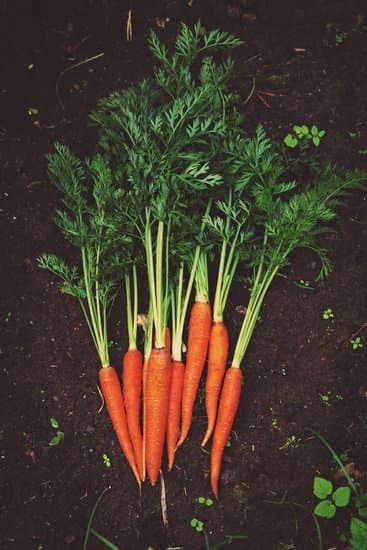Are you looking for some eggplant gardening ideas to enhance your backyard garden? Whether you’re a seasoned gardener or just starting out, this beginner’s guide to eggplant gardening will provide you with all the essential tips and tricks to grow healthy and delicious eggplants right in your own backyard. From selecting the right variety to pest management and harvesting, we’ve got you covered.
When it comes to eggplant gardening, there are several important factors to consider in order to ensure a successful harvest. In this article, we’ll discuss everything from soil preparation to creative container gardening ideas for growing eggplants. Whether you have ample garden space or limited outdoor area, there are plenty of options for cultivating these wonderful vegetables.
In addition to providing practical tips on planting and caring for eggplants, we’ll also explore how to manage pests and diseases that can affect your garden. Furthermore, we’ll delve into some delectable recipe ideas that will make the most of your homegrown produce. So if you’re ready to embark on an exciting journey into the world of eggplant gardening, read on for all the information you need to get started.
Selecting the Right Eggplant Varieties for Your Garden
When it comes to eggplant gardening, selecting the right varieties for your garden is crucial to ensure a successful and bountiful harvest. There are numerous eggplant varieties to choose from, each with its own unique flavor, size, and color. Here are some popular eggplant varieties to consider for your garden:
- Black Beauty: This classic variety produces large, glossy, deep purple fruits and is widely available at nurseries and garden centers.
- Ichiban: Known for its long, slender fruits, this Japanese eggplant variety is perfect for grilling and stir-frying.
- Fairy Tale: With its small, striped fruits, this compact variety is ideal for container gardening and smaller spaces.
In addition to these well-known varieties, there are also exotic options such as Rosa Bianca, Turkish Orange, and Listada de Gandia that can add a unique touch to your eggplant garden. Consider the growing conditions in your area and the specific qualities you’re looking for in an eggplant when making your selection.
When selecting eggplant varieties for your garden, it’s important to consider factors such as the size of the mature plant, the color of the fruit, and how you plan to use the harvested eggplants. By choosing a diverse range of varieties, you can enjoy different flavors and textures in your culinary creations while adding visual interest to your garden.
Whether you prefer traditional or heirloom varieties or want to experiment with unique shapes and colors, there’s an eggplant variety out there that’s perfect for you. With careful planning and consideration of your gardening space and preferences, you can create a well-rounded selection of eggplants that will thrive in your garden.
Essential Tips for Preparing the Soil for Eggplant Planting
When it comes to preparing the soil for eggplant planting, there are a few essential tips that can help ensure a successful harvest. Whether you’re planting in the ground or in containers, the quality of your soil will play a crucial role in the health and productivity of your eggplants.
Testing and Amending Soil pH
Before planting your eggplants, it’s important to test the pH of your soil. Eggplants thrive in slightly acidic soil with a pH range of 6.0 to 7.0. If your soil is too acidic or too alkaline, you can amend it by adding materials such as lime to raise the pH or elemental sulfur to lower it. Amending the soil to the proper pH level will create an optimal growing environment for your eggplants.
Improving Soil Structure and Drainage
Eggplants prefer well-draining soil with good structure. Heavy clay soils can be amended with organic matter such as compost or aged manure to improve drainage and aeration. For container gardening, using a high-quality potting mix specifically formulated for vegetables can help ensure proper drainage and provide essential nutrients for healthy growth.
Adding Organic Matter and Fertilizer
Incorporating organic matter into the soil, such as compost or well-rotted manure, can improve its fertility and texture. Additionally, applying a balanced fertilizer formulated for vegetables before planting can provide essential nutrients for strong root development and robust growth throughout the growing season. Taking the time to properly prepare your soil will set the stage for healthy, productive eggplant plants that are better able to resist pests and diseases.
By following these essential tips for preparing the soil for eggplant planting, you’ll be laying the groundwork for a thriving garden that yields bountiful harvests of delicious eggplants throughout the growing season. Regardless of whether you have limited space in a container garden or ample room in a traditional garden bed, taking care to prepare your soil properly will pay off with healthy, productive plants.
Planting and Caring for Eggplants
Choosing the Right Location
When it comes to planting and caring for eggplants, selecting the right location is crucial. Eggplants thrive in warm temperatures, so it’s important to choose a spot in your garden that receives plenty of sunlight. Additionally, eggplants require well-drained soil with a pH level of 6.0 to 6.8. Before planting, make sure to amend the soil with organic matter such as compost or aged manure to ensure optimal growing conditions for your eggplants.
Starting From Seeds
For those who prefer starting their eggplants from seeds, it’s best to begin indoors about 8-10 weeks before the last expected frost date in your area. Plant the seeds in small containers filled with seed-starting mix and keep them warm and moist until germination occurs. Once the seedlings have developed their first set of true leaves, they can be transplanted into larger pots or directly into the garden.
Caring for Your Eggplants
Proper care is essential for healthy and productive eggplants. Water your plants regularly, aiming for a consistent level of moisture in the soil – avoid overwatering as this can lead to root rot. Mulching around the base of the plants can help retain moisture as well as suppress weeds. Fertilize your eggplants sparingly using a balanced fertilizer high in potassium once they begin flowering to promote fruit development.
By following these planting and caring tips, you can ensure a successful and bountiful harvest of delicious homegrown eggplants.
Remember to keep these essential steps in mind when planning on taking up eggplant gardening ideas.
Creative Container Gardening Ideas for Growing Eggplants
When it comes to eggplant gardening, not everyone has the luxury of a spacious backyard or garden. However, that should not deter anyone from enjoying the fruits of their labor. Growing eggplants in containers is a wonderful way to maximize space and still enjoy a bountiful harvest. Here are some creative container gardening ideas for growing eggplants:
- Choose the Right Container: When it comes to growing eggplants in containers, size matters. Select a container that is at least 5 gallons in size to provide enough space for the roots to grow and thrive.
- Use Quality Potting Mix: A well-draining potting mix is essential for successful eggplant growth. Look for a mix specifically formulated for vegetables or add organic matter such as compost to improve soil structure.
- Provide Adequate Support: Eggplants often require support as they grow heavy with fruit. Consider using stakes or cages to support the plants and prevent them from toppling over under the weight of ripening eggplants.
Container gardening offers the flexibility to place your eggplants wherever sunlight is optimal, whether it’s on a balcony, patio, or even a sunny kitchen windowsill. With proper care and attention, you can enjoy a productive eggplant harvest right from your own containers.
Remember that when growing eggplants in containers, regular watering and fertilizing are crucial for healthy plant development and abundant fruit production. With a little creativity and resourcefulness, anyone can enjoy the satisfaction of growing their own delicious eggplants, no matter how limited their gardening space may be.
Happy planting.
Pest and Disease Management for a Thriving Eggplant Garden
Eggplants are a popular and versatile vegetable to grow in your garden. However, like any plant, they are susceptible to pests and diseases that can hinder their growth and affect the quality of the fruit. It is essential for a thriving eggplant garden to have effective pest and disease management strategies in place.
One common pest that affects eggplants is the eggplant flea beetle, which can cause significant damage to the leaves and stems of the plant. To prevent infestations, you can use row covers or insecticidal soap to protect your plants. Additionally, practicing crop rotation can help reduce the risk of flea beetle infestations in subsequent growing seasons.
Diseases such as bacterial wilt and powdery mildew can also impact eggplants. These diseases are often spread through contaminated soil or water splashing onto the leaves of the plant. To prevent disease, it is important to space your eggplants properly to promote air circulation, avoid overhead watering, and remove any infected plant material promptly. Using disease-resistant varieties of eggplant can also help mitigate the risk of infection.
| Pest/Disease | Management Strategy |
|---|---|
| Eggplant Flea Beetle | Use row covers or insecticidal soap to protect plants; practice crop rotation |
| Bacterial Wilt & Powdery Mildew | Space plants properly for air circulation; avoid overhead watering; remove infected plant material promptly; use disease-resistant varieties |
Delicious Eggplant Recipe Ideas for Using Your Homegrown Produce
Eggplants are a versatile and delicious vegetable that can be used in a variety of recipes, making them a great addition to any home garden. Whether you have just harvested your eggplants or are planning for the upcoming season, there are plenty of creative and tasty ways to use your homegrown produce.
One popular way to enjoy eggplants is by making traditional dishes such as eggplant Parmesan, ratatouille, and moussaka. These classic recipes highlight the rich and meaty texture of eggplants, making them a perfect option for vegetarian meals.
For those looking to try something new, consider grilling or roasting your homegrown eggplants to create smoky and flavorful side dishes. Another idea is to use eggplant in stir-fries or curries, adding depth and substance to these dishes.
Finally, don’t forget about incorporating eggplant into dips and spreads like baba ganoush or eggplant hummus. These options make for healthy and satisfying snacks or appetizers that showcase the unique flavor of eggplants.
When it comes to using your homegrown eggplants in recipes, the possibilities are endless. Experiment with different flavor combinations and cooking methods to discover new favorite dishes that feature this versatile vegetable.
| Eggplant Recipe Idea | Description |
|---|---|
| Eggplant Parmesan | A classic Italian dish featuring breaded and fried eggplant slices topped with marinara sauce and cheese. |
| Ratatouille | A French Provençal stewed vegetable dish that typically includes eggplant, zucchini, bell peppers, onions, garlic, and tomatoes. |
| Baba Ganoush | An Eastern Mediterranean dip made from mashed cooked eggplant mixed with tahini, olive oil, lemon juice, garlic, and various seasonings. |
Harvesting and Storing Eggplants for Long-Term Enjoyment
When it comes to harvesting and storing eggplants, there are a few key steps to ensure that you can enjoy your homegrown produce for an extended period of time. First, it’s important to know when to harvest your eggplants.
The ideal time to harvest them is when the fruits are still glossy and firm, but before the seeds inside have fully matured. To do this, simply use a pair of pruning shears or a sharp knife to cut the eggplants from the plant, leaving a small portion of the stem attached.
Once you’ve harvested your eggplants, it’s important to store them properly to maintain their freshness. Eggplants should be stored in a cool, dry place, such as a refrigerator or root cellar. It’s best to store them unwashed and uncut, as moisture can cause them to spoil more quickly. If stored properly, eggplants can last for up to two weeks.
For long-term enjoyment of your homegrown eggplants, consider preserving them through methods such as pickling or freezing. Pickling eggplant involves soaking slices of the vegetable in vinegar and spices, while freezing involves blanching the eggplant first before placing it in airtight containers or freezer bags. Both methods can help extend the life of your harvest so that you can enjoy delicious eggplant dishes throughout the year.
By following these tips for harvesting and storing your eggplants, you can make the most of your garden’s bounty and continue savoring the flavors of your homegrown produce well beyond the growing season. Whether you choose to pickle, freeze or simply store your fresh eggplants for short-term use, being mindful of proper storage techniques will allow you to enjoy this versatile vegetable long after it has been picked from the vine.
Conclusion
In conclusion, eggplant gardening can be a rewarding and enjoyable experience for both beginners and experienced gardeners. The process of selecting the right eggplant varieties, preparing the soil, planting, caring for the plants, managing pests and diseases, and ultimately harvesting and storing the produce can bring immense satisfaction. The creative container gardening ideas also offer a great option for those with limited space or who want to add some visual interest to their outdoor areas.
By embracing eggplant gardening in your own backyard, you not only have access to fresh and delicious produce but also can take pride in growing your own food. The joy of nurturing eggplants from seed to harvest is something that cannot be replicated by store-bought vegetables. Additionally, the delicious eggplant recipe ideas provide an opportunity to fully enjoy the fruits of your labor by creating mouthwatering dishes for yourself and loved ones.
Overall, eggplant gardening offers a multitude of benefits – from providing a fun and fulfilling hobby to promoting a healthier lifestyle through homegrown produce. So why not give it a try? With the essential tips provided in this beginner’s guide, you’ll be well-equipped to start your own eggplant garden and reap the numerous rewards it has to offer. Happy gardening.
Frequently Asked Questions
What Should You Not Plant Next to Eggplant?
Eggplants should not be planted next to fennel. Fennel can negatively affect the growth of eggplants, so it’s best to keep these two plants separate in your garden.
What Is the Secret for Growing Eggplant?
The secret for growing eggplant lies in providing the right growing conditions. Eggplants thrive in warm, sunny locations with well-drained soil. It’s important to water them regularly and provide adequate nutrients for healthy growth.
What Is the Best Month to Plant Eggplant?
The best month to plant eggplant is in the spring, once the soil has warmed up and there is no longer a risk of frost. This typically falls around late April or early May, depending on your specific climate and location. Spring planting gives eggplants the best chance to establish themselves and produce a good crop during the summer months.

Welcome to my gardening blog! I am passionate about plants and enjoy sharing my knowledge and experiences with others. In this blog, I will write about everything related to gardening, from tips on how to get started to updates on my own garden projects.





